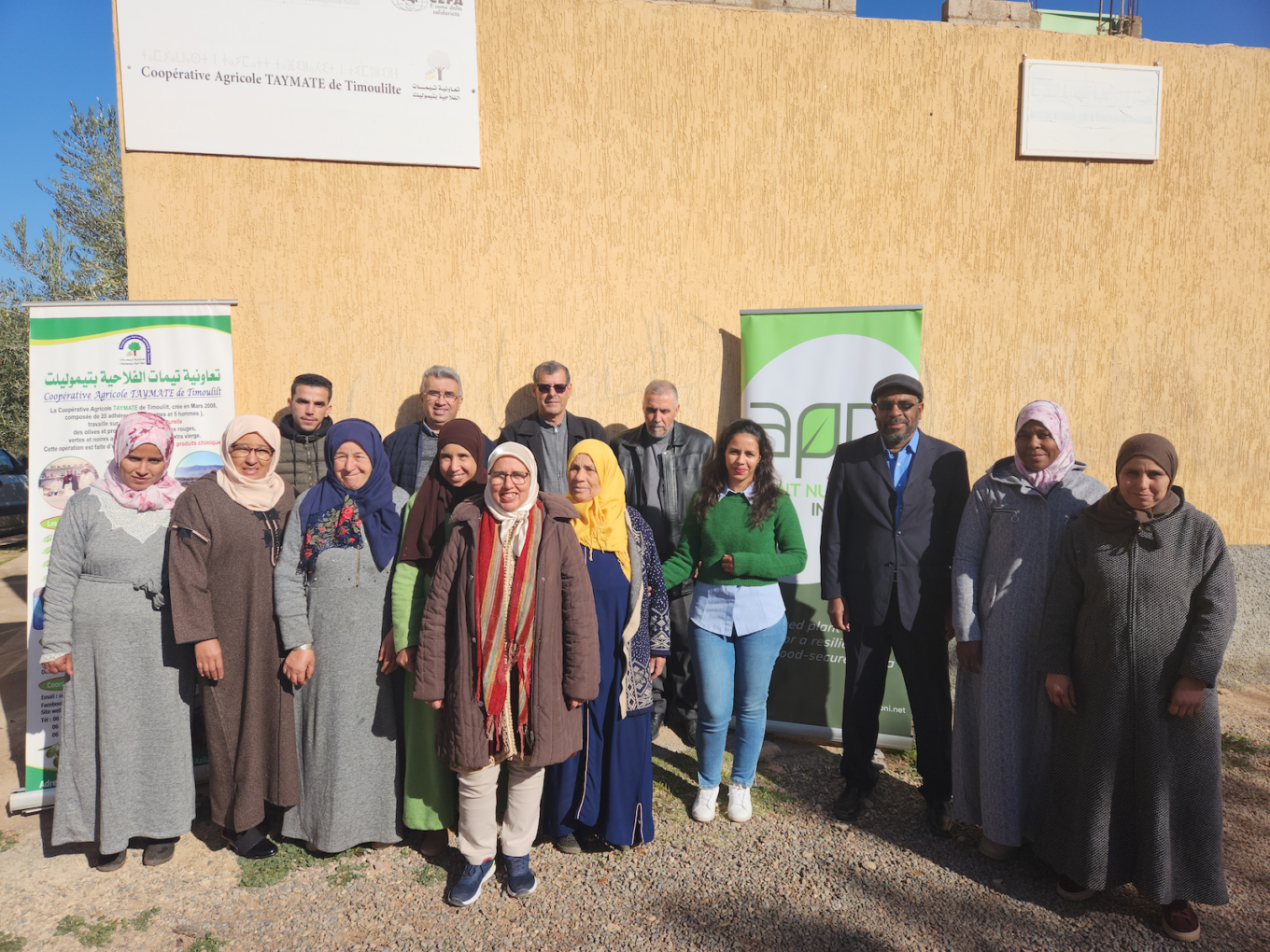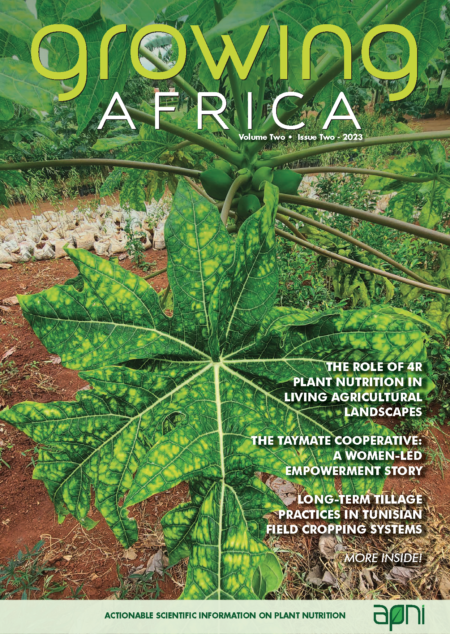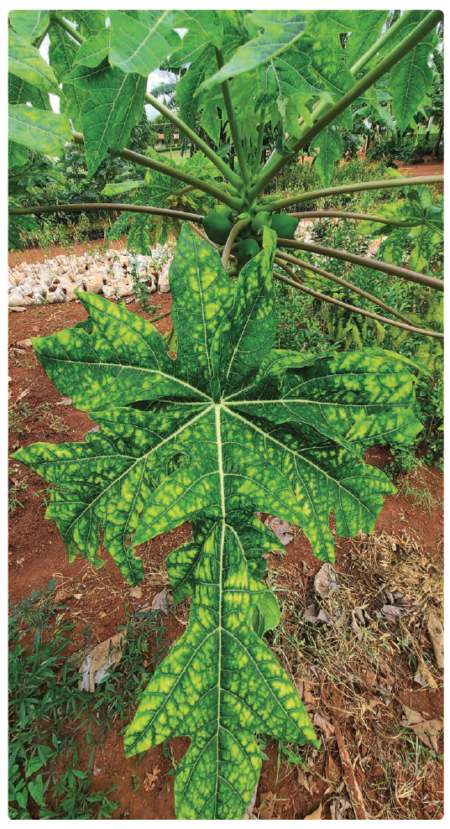By Aziza Tangi, Ngonidzashe Chirinda, Hakim Boulal, and Thomas Oberthür
When success stories from agricultural cooperatives are identified they deserve to be studied and told to inform actions for scaling out best management. We explore how cooperatives encourage strategies for livelihood improvement and support economic and social innovations to foster community adaptation to climate change. Lessons from the Taymate Olive Cooperative inform the design and implementation of effective policies and programs supporting the growth and sustainability of gender-sensitive agricultural cooperatives in Morocco and contribute to the socioeconomic development of rural communities.
The history of the Taymate Cooperative
Livelihood-driven cooperatives are constituted by independent groups or individuals that voluntarily agree to address shared economic, social, and cultural needs and goals through a jointly owned and democratically run business (Zeuli and Cropp, 2004). In 2008, motivated to generate income to support their families, a group of young women with diplomas created such an agricultural cooperative. The cooperative is located in Timoulilt commune, Azilal, in Morocco’s northcentral Beni Mellal-Khenifra region. Currently the Taymate Cooperative has 20 members, including 15 women and five men, and a capacity to produce 50 t of table olives from olive orchards covering an area of around 70 ha. The main activities of the cooperative include producing, collecting, packaging, and processing olives. The cooperative aims to add value to harvested olives, preserve the olive trees of the Timoulilt commune, and engage women to improve their income levels and, subsequently, their family’s standard of living.
In 2011, the cooperative built its olive preservation unit with support from a National Initiative for Human Development (INDH) program in Azilal province and the European Committee for Agricultural Training (CEFA). Then, in 2014, the French Foundation further equipped the cooperative with other modern machinery. The cooperative has benefited from a supporting ecosystem fostered by the Green Morocco Plan’s (2008– 2020) strategy centered on growth in the agricultural sector based on cooperatives, state actors including the INDH and Ministries of Agriculture and Industry, and several other national and international institutions.
Working within the cooperative has provided members the opportunity to be more independent financially, even if the gain was small. For these women, belonging to the cooperative provides a relief that gives them a sense of freedom.
The Taymate Cooperative members are women warriors who can do great things with little. Can you imagine what they can achieve if given a chance and the resources to improve their lives and their local communities? These women were happy despite their initial working conditions in a small building without electricity or running water since it gave them a chance to escape the arrogance of their bosses at the farms as agricultural wage workers.”
– Rabha, Cooperative President
Why is Taymate Cooperative a success story?
While there is a myriad of factors that contribute to the success of a cooperative, including the financial and capacity building support systems that they have accessed, quotes from members of the Tayamate cooperative explain their experiences:
Since joining the Taymate Cooperative, I felt that I am blessed; it is a gift from God; it has enabled me to support my family, my sick husband, and my two deaf and mute boys. My life has started changing, and my passion for my work has grown. The challenge for me has been limited to the extent of my success in acquiring autonomy at work and my ability to support my family. As a poor woman raised in a rural area, I have never imagined that one day I would travel in a plane outside Morocco or shake hands and receive a gold medal from the Moroccan Minister of Agriculture. That was unimaginable.”
– Fatiha, 60 years-old, Treasurer of the Cooperative, and an Ex-wage Worker
Our members have benefited from the cooperative since part of our income is shared among ourselves and another part is reinvested into the cooperative. This money has helped them enroll their children in school and buy clothes and books. In addition, 70% of the members have been able to continue building their houses and brought small livestock to generate more money for their livelihoods. Thanks to human development programs and the support of the Regional Directorate of Agriculture, Regional Agricultural Development Office, the Chamber of Agriculture, State authorities, the Social Development Agency (ADS), the National Office of Sanitary Safety and Food Products (ONSSA), elected councils, etc., the cooperative has been able to ensure its presence on a large scale, despite national competition. This has enabled us to participate in numerous national and international exhibitions, notably in France, Switzerland, the Emirates, Tunisia, and Morocco. We have customers in Rabat, Marrakech, Azilal, Beni Mellal, and Ouzoud in Morocco. It is a small quantity, but we sell continuously.”
– Halima, Vice President
The Taymate Cooperative has received several certificates, including the “Terroir du Maroc” product label, the food safety certificate from the National Office of Sanitary Safety and Food Products (ONSSA) in 2014 for table olives and an extra virgin olive oil certificate in 2018. In addition, they obtained the Independent Export Control and Coordination Organization (EACCE) certificate for table olives in 2015. They have also won the gold medal for its extra-virgin olive oil product and the bronze medal for its herb-flavored black olives product in 2020.
Research has demonstrated that successful agricultural cooperatives have proven to be an effective tool for the socioeconomic development of regions. They often catalyze a reduction in social and spatial inequality and leverage social and environmental protection and sociopolitical emancipation (ODCO, 2012). In the Timoulilt commune, the creation of the cooperative has influenced the behaviors and attitudes of the farmers regarding several agricultural practices such as the pruning of the olive orchard. According to Si Mustapha, a member of the cooperative, “In the
beginning, the farmers refused to practice pruning because they considered the olive as a sacred tree that should not be touched, but after different discussions and training, they started practicing it, especially the farmers who are engaged with the cooperatives to provide olives.”
Crafting a coherent group for a sustainable cooperative
The creation of a homogeneous group is critical to making cooperatives work. Being a cooperative member is the individual’s first decision, and the motivation is primarily economic. Farmers participate because they obtain direct and indirect benefits. The more diverse the membership and vision, the more difficult it is to achieve agreement on goals, and as a result, there are higher decision-making costs, including the costs of gathering information on the member’s preferences, voting cycles between them, as well as attending meetings and other activities associated with collective decision-making (Hansmann, 1999). Farmers’ attitudes toward agricultural cooperatives and participation behavior may differ depending on their age, education, or the size of the farm under their responsibility (Hansen et al., 2002; Osterberg et al., 2009). Because cooperatives are owned and controlled by their members (Dunn, 1988), active participation in cooperative decision-making is critical to the organization’s operation and viability (Spear, 2004).
The Taymate Cooperative members have different education levels but they share a common goal: looking for income-generating activities to cope with the impact of climate change. It is essential to remember that large group sizes can make cooperation and survival more difficult. Cooperation and efficiency, according to the theory of collective action, necessitate unanimous action (Olson, 1971). Large groups may encounter the problem of free riders, which can hinder group efforts. Furthermore, management theory studies have shown that larger group sizes can lead to increased conflict and decreased group cohesiveness (Valentinov, 2004).
Studies reveal that about 20% of cooperatives fail in the first few years of operation (Ibourk and El Aynaoui, 2023; Chlebicka et al., 2018; Grashuis, 2018). The high failure rate is caused mainly by barriers to marketing, governance, management, legislation, supervision, and funding, as well as fundamental issues with leadership and project formalization, mainly brought on by the beneficiaries’ low skill levels (Ibourk and El Aynaoui, 2023).
The cooperative members always look for solutions because they are self-motivated. According to Al Mehrzi et al. (2016), a significant and positive relationship exists between member motivation and performance. During the creation process, the founders of the Taymate Cooperative tried to gather motivated members who were determined to work hard to improve their livelihoods and preserve their ancestors’ olive orchards. That is among the keys to the cooperative’s success and sustainability. The motivation of the Taymate members arises from self-will, and usually, intrinsic motivations are more durable than the motivation that comes from outside. Solidarity and mutual respect are other principles that shape the relationships between the members of the cooperative; they work together as a family. An exogenous factor influencing agricultural cooperative survival is the local culture’s attitude toward the concept and values of cooperation (Giagnocavo et al., 2018).
Women leaders can empower others – and themselves
Cooperatives play an important role because they can meet women’s practical and strategic needs by providing access to income-generating activities as worker-owners (Maleko, 2015). Women are the Taymate Cooperative’s backbone because they provide and participate in all activities. The cooperatives have been led by two women, Halima and Rabha, since the start. Both have demonstrated their ability to help other women members overcome gender-specific constraints to improve their self-confidence, knowledge, income, access to inputs, and social network and create a space for these women and themselves in the table olive value chain.
I noticed a shift in my personality after years of joining the cooperative. I gained self-confidence and can now speak in front of people. I feel that my voice is heard and can change my community. I like the new me, and I am not afraid anymore. Now, I am convinced that alone, we go fast. However, together, we go further.”
– Mina, cooperative member
Several studies have found that notions of leadership are implicitly or explicitly assumed, with leadership being linked to gender (Bajcar et al. (2019); Hassan et al., 2008). Women’s leadership styles are more participative and less directive than their male counterparts. Women are people-oriented and “transformational” rather than task-oriented and “transactional,” and this is a distinct style (Eagley et al., 1990).
Most of the cooperative members are women and they have demonstrated remarkable effectiveness and cooperation, which has contributed to its success and survival. Women are more active in cooperation than men due to several factors. Firstly, women show a greater inclination to cooperate in interaction with strangers. At the same time, men tend to be more sensitive to the effects of society and make cooperative decisions more often when friends are in the group (Peshkovskaya et al., 2018; Capraro et al., 2018). Additionally, women’s attraction to cooperative incentives may result from their more optimistic assessments of their prospective teammate’s ability and their advantageous inequity aversion (Peshkovskaya et al., 2017). Furthermore, women’s behavior is more reactive to the social conditions of different games, and they are not less competitive than men when the games evoke a parenting frame or include a pro-social option (Kuhn et al., 2015). Overall, women’s cooperative behavior may be influenced by their evolutionary adaptation to strategically suppress competitiveness to elicit cooperation for raising offspring (Cassar et al., 2023).
Important Insights
Taymate’s Cooperative provided women with support and training and gave them a source of income, independence, control, and self-esteem. The success stories of this cooperative reflect the efforts made by the members, particularly women, to build their success in small but specific ways. However, it is essential to note that despite efforts to combat poverty and gender inequality, rural women still face marginalization in development programs, with limited participation in decision-making processes and unequal economic benefits within cooperatives (Montanari et al., 2019).
From the Taymate Cooperative’s story, women should adhere to certain principles to succeed in agricultural cooperatives. Firstly, cooperatives should prioritize accountability, fair wages, and competitiveness in high-end markets to avoid failure, as Dossa (2012) confirmed. Secondly, overcoming barriers to women’s participation, such as low levels of education, domestic and childcare responsibilities, and cultural constraints. Illiteracy among rural women should be addressed through education and empowerment initiatives to promote their active participation in decision-making processes (Housseine, 2021). Thirdly, adopting sustainable management practices can positively impact women’s cooperatives’ community, environment and competitiveness (Omari et al., 2013). Additionally, women’s participation in decision-making processes and fostering cooperative networks contribute to their success in agricultural cooperatives (Esayas et al., 2017). Lastly, women’s involvement in income-generating activities and cooperative decision-making should be promoted to ensure economic empowerment and gender equality (Montanari et al., 2019).
The Taymate story of women empowering women must be scaled out to other regions. Overall, women’s cooperatives have proven to be a valuable avenue for women’s social inclusion, empowerment and economic advancement. Still, we must always keep in mind the sociocultural differences in each area because they influence how people intervene, behave, and are willing to engage in efficient collective actions. n
Ms. Tangi (aziza.tangi@um6p.ma) is a Doctoral Student at the Agricultural Innovation and Technology Transfer Center, Mohammed VI Polytechnic University (UM6P), Benguérir, Morocco. Dr. Chirinda is Professor of Sustainable Tropical Agriculture, UM6P. Dr. Boulal is Senior Scientist, African Plant Nutrition Institute (APNI), Settat, Morocco. Dr. Oberthür is Director of Business and Partnerships, APNI, Benguérir, Morocco.
Cite this article
Tangi, A., Chirinda, N., Boulal, H., Oberthür, T. 2023. The Taymate Cooperative: A Women-led Empowerment Story, Growing Africa 2(2), 33-38. https://doi.org/10.55693/ga22.TBCI8696
REFERENCES
Al Mehrzi, N., Singh, S.K. 2016. Competing through employee engagement: A proposed framework. Inter. J. Prod. Perf. Manage., 65(6), 831-843.
Bajcar, B., Babiak, J. 2019. Gender Differences in Leadership Styles: Who Leads More Destructively? Paper presented at the 34th IBIMA Conference, p. 13-14 November 2019, Madrid, Spain.
Capraro, V. 2018. Women are slightly more cooperative than men (in one-shot Prisoner’s dilemma games played online). arXiv preprint arXiv:1805.08046.
Cassar, A., Rigdon, M. 2023. Sustaining the potential for cooperation as a female competitive strategy. Philos. Trans. Roy. Soc. B., 378(1868), 20210440.
Chlebicka, A., Pietrzak, M. 2018. Size of Membership and Survival Patterns of Producers’ Organizations in Agriculture—Social Aspects Based on Evidence from Poland. Sustainability, 10(8), 2293.
Dossa, Z.A. 2012. Cooperatives: A development strategy? An analysis of Argan oil cooperatives in Southwest Morocco.
Dunn, J.R. 1988. Basic Cooperative Principles and Their Relationship to Selected Practices. J. Agric. Cooperation, 3, 83-93.
Eagley, A.H., Johnson, B.T. 1990. Gender and Leadership Style: A Meta-Analysis. Psych. Bull., 108(2) 233-256.
Esayas, B., Gecho, Y. 2017. Determinants of women’s participation in agricultural cooperatives activities: The case of Sodo Zuria Woreda, Wolaita zone, Southern Ethiopia. J. Cult., Soc. Devel., 27, 27-35.
Giagnocavo, C., Galdeano-Gómez, E., Pérez-Mesa, J.C. 2018. Cooperative Longevity and Sustainable Development in a Family Farming System. Sustainability 10(7), 2198.
Grashuis, J. 2018. An Exploratory Study of Cooperative Survival: Strategic Adaptation to External Developments. Sustainability 10(3), 652.
Hansen, M.H., Morrow, J.L., Batista, J.C. 2002. The impact of trust on cooperative membership retention. The Inter. Food and Agribusiness Manage. Rev., 5(1), 41-59.
Hansmann, H. 1999. Cooperative firms in theory and practice. Finnish J. Bus. Econ., 4, 387-403.
Hassan, Z., Silong, A.D. 2008. Women Leadership and Community Development. Eur. J. Sci. Res., 23(3) 361–372.
Housseine, B. 2021. Illiteracy Effects on Local Development in the Moroccan Rural World: Challenges and Recommendations. In, Linguistic Forum: A Journal of Linguistics 3(1), 17-21.
Ibourk, A., El Aynaoui, K. 2023. Agricultural Cooperatives’ Sustainability and the Relevance of Start-Up Support Programs: Evidence from Cooperatives’ Level in Morocco. Sustainability 15(4), 3460.
Kuhn, P., Villeval, M.C. 2015. Are women more attracted to co-operation than men? The Econ. J., 125(582), 115-140.
Maleko, G., Msuya, R. 2015. Women Participation in Cooperatives – Challenges and Prospects. The Case of Selected Saccos and Amcos in Kilimanjaro and Arusha Regions Tanzania, East Africa. J. Bus. Admin. Educ., 7(1) 81-111.
Montanari, B., Bergh, S.I. 2019. A gendered analysis of the income-generating activities under the Green Morocco Plan: Who profits? Human Ecol., 47(3), 409-417.
ODCO. 2012. L’entrepreneuriat Coopératif, un Enjeu Pour L’emploi des Jeunes Diplômés Marocains; Revue Innover et Entreprendre: Paris, France, 2014.
Olson, M. 1971. The Logic of Collective Action: Public Goods and the Theory of Groups, 2nd ed.; Harvard University Press: Cambridge, MA, USA.
Omari, S., Elkandoussi, F. 2013. The marketing of women’s Argan cooperatives: Challenges and opportunities. Inter. J. Bus. Soc. Sci., 4(6), 112-118.
Osterberg, P., Nilsson, J. 2009. Members’ perception of their participation in the governance of cooperatives: The key to trust and commitment in agricultural cooperatives. Agribusiness, 25(2), 181-197.
Peshkovskaya, A., Babkina, T., Myagkov, M. 2018. Social context reveals gender differences in cooperative behavior. J. Bioecon., 20, 213-225.
Peshkovskaya, A., et al. 2017. Do women socialize better? Evidence from a study on sociality effects gender differences in cooperative behavior. MPRA Paper 82797, University Library of Munich, Germany.
Spear, R. 2004. Governance in democratic member-based organizations. Ann. Public Coop. Econ., 75(10), 33-59.
Valentinov, V.L. 2004. Toward a Social Capital Theory of Cooperative Organisation. J. Coop. Stud., 37, 5-20.
Zeuli, K.A., Cropp, R., Schaars, M.A. 2004. Cooperatives: Principles and practices in the 21st century. Univ. Wisconsin, Extension. 89.





